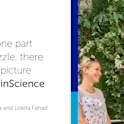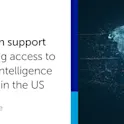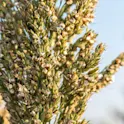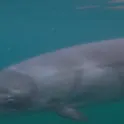1,071 news posts

Featured news
18 Aug 2023
A simple mouth rinse could spot early heart disease risk
by Angharad Brewer Gillham, Frontiers science writer Image/Shutterstock.com Periodontitis, a common oral health problem that involves infected gums, is linked to cardiovascular disease. Scientists studying the inflammation that precedes periodontitis have found that higher inflammation, reflected by higher levels of white blood cells in saliva, is linked to less healthy arteries and a potentially higher risk of cardiovascular disease even in young, apparently healthy people. What if we could identify the earliest warning signs of cardiovascular disease from a simple saliva sample? Scientists think they have found a way to do so. Gum inflammation leads to periodontitis, which is linked with cardiovascular disease. The team used a simple oral rinse to see if levels of white blood cells — an indicator of gum inflammation — in the saliva of healthy adults could be linked to warning signs for cardiovascular disease. They found that high levels correlated with compromised flow-mediated dilation, an early indicator of poor arterial health. “Even in young healthy adults, low levels of oral inflammatory load may have an impact on cardiovascular health — one of the leading causes of death in North America,” said Dr Trevor King of Mount Royal University, corresponding author of the study published […]

Frontiers news
17 Aug 2023
Natalia Kucirkova and Loleta Fahad – We all must come together – without one part of the puzzle, there isn’t a full picture
Authors: Rose Gordon-Orr and Carolina Capelo Garcia Natalia Kucirkova is a professor at the University of Stavanger in Norway and The Open University in the UK. She also holds the position of visiting professor at University College London (UCL), UK, and acts as the chair of the International Collective of Children’s Digital Books. Loleta Fahad serves as the head of Career Development in Organizational Development at University College London (UCL), UK. In this role, she is responsible for overseeing the management, development, and implementation of resources that facilitate the ongoing growth, advancement, and retention of professional staff at UCL. Natalia and Loleta’s collaboration culminated in their published work, Inspirational Women in Academia: Supporting Careers and Improving Minority Representation (2022). Bringing together their lived experiences working within symbiotic areas of academia, they amplified the voices of academic women, and celebrating the United Nations Sustainable Development Goal 10: Reducing inequalities within and among countries, we sat down with them to listen and amplify theirs. Photo credit: Natalia Kucirkova As part of your book, Inspirational Women in Academia; Supporting Careers and Improving Minority Representation you interviewed top-performing female academics about their experiences. How would you summarize your main findings across all the women’s […]

Featured news
16 Aug 2023
Sustainability in space travel can aid efforts here on Earth
by Angelo Vermeulen/Deborah Pirchner, Frontiers science writer Image: E|A|S (Evolving Asteroid Starships)/Joris Putteneers Dr Angelo Vermeulen is a space systems researcher at Delft University of Technology in the Netherlands, where he explores advanced concepts for interstellar exploration. Over the past decade, he has collaborated closely with the European Space Agency’s (ESA) MELiSSA program, developing concepts for bioregenerative life support systems for space. In such systems, a variety of microorganisms progressively break down human waste and the resulting compounds are harnessed by plants to produce oxygen and food for the crew. Beyond his scientific pursuits, Dr Vermeulen is also an accomplished artist and a co-founder of the SEADS (Space Ecologies Art and Design) collective. SEADS creates artworks that seamlessly integrate concepts and technologies from a diverse array of scientific disciplines, including biology, neuroscience, computer science, and astrophysics. He is the author of a recently published Frontiers in Astronomy and Space Sciences article in which he and his co-authors describe a new model that theoretically produces all required food and oxygen during long-duration and remote space missions, removing the necessity for resupply from Earth. In this latest entry to the Frontier Scientists series, he has caught up with us on his current […]

Featured news
15 Aug 2023
Scientists pinpoint the microbes essential to making traditional mozzarella
by Angharad Brewer Gillham, Frontiers science writer Image/Shutterstock.com Scientists studied the microbes present at different stages of the mozzarella-making process at different dairies using DNA analysis. Most of the bacteria were either Lactobacillus or Streptococcus, but at a smaller dairy, more minor bacterial families were found. The general similarity of the microbiota involved between dairies suggests that, despite minor differences between manufacturers, the same microbes make the mozzarella. Mozzarella is far more than just a pizza topping. A unique Italian cheese, buffalo mozzarella from Campania has been recognized as a delicacy and protected under EU law for nearly 30 years. But what makes this mozzarella so special? The ingredients are simple: water buffalo milk, rennet, and natural whey starter, processed using fresh water and brine. But the natural whey starter contains microbes that are crucial to developing the mozzarella. Scientists from Italy used high-throughput 16S rRNA amplicon sequencing, which gives a detailed picture of what microbes are present and in what proportions, to understand how microbes make mozzarella. “This study sheds light on the intricate interactions of microorganisms throughout the manufacturing process and fosters a deeper understanding of the craftsmanship behind this esteemed Italian cheese,” said Dr Alessia Levante of […]

Featured news
10 Aug 2023
New high-tech microscope using AI successfully detects malaria in returning travelers
By Deborah Pirchner, Frontiers science writer Image: Shutterstock.com Malaria is an infectious disease claiming more than half a million lives each year. Because traditional diagnosis takes expertise and the workload is high, an international team of researchers investigated if diagnosis using a new system combining an automatic scanning microscope and AI is feasible in clinical settings. They found that the system identified malaria parasites almost as accurately as experts staffing microscopes used in standard diagnostic procedures. This may help reduce the burden on microscopists and increase the feasible patient load. Each year, more than 200 million people fall sick with malaria and more than half a million of these infections lead to death. The World Health Organization recommends parasite-based diagnosis before starting treatment for the disease caused by Plasmodium parasites. There are various diagnostic methods, including conventional light microscopy, rapid diagnostic tests and PCR. The standard for malaria diagnosis, however, remains manual light microscopy, during which a specialist examines blood films with a microscope to confirm the presence of malaria parasites. Yet, the accuracy of the results depends critically on the skills of the microscopist and can be hampered by fatigue caused by excessive workloads of the professionals doing the […]

Open science policy
09 Aug 2023
Open access research publisher Frontiers welcomes a bipartisan bill to expand access to artificial intelligence research in the US
The bipartisan CREATE AI Act aims to overcome the access divide and see the benefits and risks of artificial intelligence properly weighed for all Americans. Photo credit: Frontiers In July 2023, US Senators Martin Heinrich (D-N.M.), Todd Young (R-Ind.), Cory Booker (D-N.J.), and Mike Rounds (R-S.D.) introduced the CREATE AI Act (the Creating Resources for Every American To Experiment with Artificial Intelligence Act). U.S. Representatives Anna Eshoo (D-Calif.), Michael McCaul (R-Texas), Don Beyer (D-Va.), and Jay Obernolte (R-Calif.) introduced a companion bill in the House of Representatives. Frontiers welcomes the move. It shows foresight, creativity, and the chance to properly weigh the risks and benefits of AI for all. The bill proposes new national infrastructure for the US that gives researchers, academics, startups, and students from diverse backgrounds much-needed access to the computing power, resources, data, and tools needed to develop safe and trustworthy artificial intelligence. The principle of open access to these resources – and the ambition to expand research on this cutting-edge technology to the best and brightest minds in the US – chimes loudly with our mission as an Open Science research publisher. At Frontiers, we want to see all science open – so that we can […]

Climate action
08 Aug 2023
Antarctic extreme events: ‘All-time records are being shattered not from decades ago, but from the last few years and months’
By Prof Martin Siegert, University of Exeter (Cornwall) Image: Shutterstock.com 42 governments around the world have agreed to protect Antarctica’s environment. While the main focus has been on operational activities in Antarctica, global warming caused by fossil-fuel burning by these (and other) countries has left Antarctica on the brink of irreversible change. A new study published in Frontiers in Environmental Science has revealed that, in addition to the influence of gradual global heating, Antarctica is increasingly affected by extreme environmental events; a recognized and predicted outcome of our heating world. Writing as part of Frontiers’ guest editorials series, the study’s lead author – Prof Martin Siegert, deputy vice chancellor of the University of Exeter (Cornwall) – discusses how without there being a rapid shift to net-zero greenhouse gas emissions by 2050, the Antarctic environment will experience ever more drastic changes. Extreme weather events appear to be increasing in size and occurrence, with disastrous outcomes for lives and livelihoods, whether it be from intense heatwaves, severe droughts, deluge rainfall, flooding, and deep storms. All-time records are being shattered not from those of decades ago, but from the last few years and months, exemplifying the human-induced forces we are subjecting our planet […]

Featured news
08 Aug 2023
Holidaymakers be warned: Short, intense sun-seeking trips can disrupt skin’s microbiome
By Deborah Pirchner, Frontiers science writer Image: Shutterstock.com Heightened exposure to ultraviolet radiation (UVR) is the leading cause of preventable skin cancer and other skin problems. To prevent sun-induced damage, protecting the skin is crucial. If no protection measures are taken, new research by The University of Manchester scientists in collaboration with the No7 Beauty Company, has shown that the skin microbiota composition can change in as little as seven days. Although the bacterial communities living on the skin bounced back to their original structure within a few weeks, researchers pointed out that damaging effects on skin health cannot be ruled out. Skin, the largest organ of the human body, is home to a vast array of bacteria, fungi, and viruses – microorganisms that compose the skin microbiota. Among other things, these microbial populations, which are organized in complex community structures, protect against pathogens. Prolonged exposure to UVR is associated with damage to DNA in skin cells, inflammation, and premature skin aging, yet intentional sun-seeking behaviors remain common. Due to a lack of studies focusing on how individual behavior influences UVR-associated microbiota shifts, and how this may relate to skin health, researchers in the UK have now examined the effects […]

eBooks
04 Aug 2023
Frontiers ebook releases: August 2023
Download the top ebook releases from this month, including work on effort-based decision making, insights into clinical nutrition, findings on how plants adapt to stress, and research on bio-inspired computing. All ebooks are free to download, share and distribute. Shape the future of your field — and publish your own ebook — by editing a special collection around your research area. Learn more about Research Topics or submit your suggestion. The Ocean, Volume 2Edited by Hervé Claustre; Carolyn Scheurle; Laura Lorenzoni; Sanae Chiba; Emily KingPDFBio-Inspired Computation and Its ApplicationsEdited by Tinggui Chen; Zhihua Cui; Gongfa Li; Xiao-Zhi Gao; Honghai LiuPDFExploration of Dietary Correlates of Conspiratorial ThinkingEdited by Reza Rastmanesh; Guoyan Wang; Neil DagnallPDFCombining Chemo/radio Therapy and Immunotherapy for Cancers—Perfect Mix of Old and New Edited by Jian Zhang; Linlang Guo; Clare Y Slaney; Feng-Ming (Spring) KongPDFCo-use of medicines in surgeryEdited by Songwen Tan; Weiguo Li; Chuanpin ChenPDFPublic Health, Governance, Green Environment and EconomyEdited by Suleman Sarwar; Dalia Streimikiene; Rida Waheed; Abdul RaufPDFInsights in Clinical NutritionEdited by Maurizio MuscaritoliPDFComparative Animal ConsciousnessEdited by Louis Neal Irwin; Lars Chittka; Nicky S Clayton; Eva Jablonka; Jon Mallatt; Todd E FeinbergPDFNeuropeptide GPCRs in Neuroendocrinology, Volume IIEdited by Hubert Vaudry; Liliane Schoofs; Olivier Civelli; Masayasu KojimaPDFProfessional and […]

Featured news
04 Aug 2023
Consuming added sugars may increase risk of kidney stones
By Mischa Dijkstra, Frontiers science writer In an observational study, researchers showed that consuming more added sugars is consistently associated with greater odds of developing kidney stones in the US, especially for ethnicities such as Native Americans or Asians, or for people with a relatively higher income. The mechanisms of this relationship, and whether it is directly causal, aren’t yet known. Between 7% and 15% of people in North America, between 5% and 9% of people in Europe, and between 1% and 5% of people in Asia suffer from kidney stones. Common symptoms are severe pain, nausea, vomiting, fever, chills, and bloody urine. But kidney stones don’t just reduce the quality of life: in the long run, they may lead to infections, swollen kidneys (hydronephrosis), renal insufficiency, and end-stage renal disease. Known risk factors for developing kidney stones include being an adult male, obesity, chronic diarrhea, dehydration, and having inflammatory bowel disease, diabetes, or gout. Now, a study in Frontiers in Nutrition has shown for the first time that an elevated consumption of added sugars should probably be added to the list of risk factors for kidney stones. Added sugars occur in many processed foods, but are especially abundant in […]

Research Topics
03 Aug 2023
Building the city of the future: Here are some article collections on sustainable cities
Cities are where many of us spend the majority of their time: to work, play, and live. To explore how this might be done sustainably in the future, we are highlighting the top Research Topics on sustainable cities. Join us by reading up on the incredible findings and solutions made by researchers from across the globe. With more than 720,000 collective views, scientists explored topics and advanced fields, including work on trends in urban agriculture, sustainable urban development, urban play, and well-being in urban environments. Research Topics: Legacies of land use in cities 10 articles | 132,000 views Understanding the cultural, political and ethical dimensions of urban nature Trends in urban agriculture 10 articles | 131,000 views Using innovative systems to discover which urban agricultural practices are productive, ecologically sustainable, and economically profitable Transformative urban greening 9 articles | 45,000 views Aiming to take stock of and advance the current state-of-the-art in green space governance in a global perspective Uncovering the hidden footprint of cities 13 articles | 95,000 views Providing an overview of current research on urban microbiomes of city green spaces and other elements of the built and natural environments Implications for the planning and management of healthy […]

Featured news
02 Aug 2023
Fighting chronic pain with food: Here are five Frontiers articles you won’t want to miss
By Deborah Pirchner, Frontiers science writer Image: Shutterstock.com At Frontiers, we bring some of the world’s best research to a global audience. But with tens of thousands of articles published each year, it’s impossible to cover all of them. Here are just five amazing papers you may have missed. Certain foods help ease chronic pain Chronic pain caused by rheumatic diseases often requires prolonged treatment using drugs which are associated with side effects. Eating a certain diet, however, has been suggested as a possible way to alleviate chronic pain symptoms. Recommended foods include berries, fatty fish, and avocados. In a pilot study, researchers in Spain have evaluated the efficacy of an anti-inflammatory diet in patients with chronic pain. They have published their findings in Frontiers in Nutrition. In a first step, the researchers designed a 13-item anti-inflammatory dietary guide, including anti-inflammatory foods like curcumin and coffee. Foods with inflammatory properties, for example red meat, gluten, and cow’s milk, were excluded from the list. In the second part of the study, participants followed the diet for four months. The researchers found a positive correlation between the anti-inflammatory food participants ate and physical characteristics, stress, and pain. Consuming the anti-inflammatory diet also […]

Featured news
31 Jul 2023
Scientists solve ‘enigma’ of pygmy right whales’ feeding habits
By Mischa Dijkstra, Frontiers science writer A pygmy right whales in the wild. Image credit: Henry Cordell Researchers have shown from stable isotope ratios in the baleen of pygmy right whales that this ‘most enigmatic’ species of baleen whales remains in waters off southern Australia year-round and feeds on Australian krill and copepods. Unlike larger relatives, they don’t make seasonal migrations to Antarctic regions. Pygmy right whales (Caperea marginata) are the smallest, ‘most enigmatic’, and probably least studied of all baleen whales. Baleen act like sieves in the mouth of baleen whales, which allow seawater to pass but trap small prey items like zooplankton and small fish. Pygmy right whales are rarely seen in the wild. Reason for this may be their relatively small size – up to 6.5 meters long and weighing up to 3.5 tons –, sparse distribution, and inconspicuous behavior, especially compared to the boisterous humpback whales. Historically, whalers rarely bothered hunting them. The little we know about them is mainly based on beached animals. “Here we show that pygmy right whales don’t behave like most other baleen whales: they don’t make long cross-ocean migrations,” said Dr Tracey Rogers, a professor of ecology and evolution at the […]

Featured news
27 Jul 2023
Low fiber intake during pregnancy may delay development in infants’ brains
By Deborah Pirchner, Frontiers science writer Image: Shutterstock.com Certain nutrients – including dietary fiber, vitamin C, and folic acid – are often consumed in too small amounts. Previous research has shown that during pregnancy these nutrients are essential for the development of offspring. In a new cohort study, researchers have confirmed the link between children’s brain development and maternal fiber consumption. They found that neurodevelopmental delays correlated with the amount of dietary fiber expectant mothers did – or did not – consume during pregnancy. Maternal dietary fiber insufficiency affected several domains related to children’s brain function, including communication, and personal-social skills. Undernutrition during pregnancy is one of the factors linked to an increased risk of diseases in children as they grow older. Yet, maternal malnutrition remains a problem for women worldwide. Animal studies have shown that a low-fiber diet during pregnancy impairs brain nerve function in offspring. Now, in the first human cohort study on the relation of maternal nutritional imbalance and infants’ brain development, researchers in Japan have investigated if the same effects can be found in humans. “Most pregnant women in Japan consume far less dietary fiber than what is the recommended intake,” said Dr Kunio Miyake, a […]

Frontiers news
26 Jul 2023
Frontiers’ Volunteers: Taking action through tutoring
Frontiers’ volunteers have always been at the forefront of community and societal responses. Emily Darley shares her volunteering efforts tutoring, an opportunity that has allowed her to combine her skills and interests. Photo credit: Emily Darley What is your background and role at Frontiers? “I joined Frontiers last year as a copyediting specialist. My background is mainly in academia: I did a PhD looking at cognitive processing of linguistic material, followed by a postdoc in which I worked on a computational project in automatic speech recognition. Alongside and in-between this work, I did a couple of freelance stints working on copyediting of scientific articles. I enjoyed it and ultimately decided to take my career in that direction. While I was working in academia, I had quite a few opportunities for teaching — typically undergraduates, but occasional outreach efforts with younger pupils too. It’s something that I miss a little bit in this role. Volunteering is a perfect way to scratch that itch in a way that feels really positive!” What does the organization you volunteered for do? “Action Tutoring is a national education charity whose aim is to ‘level the playing field’ to some extent in terms of access to […]